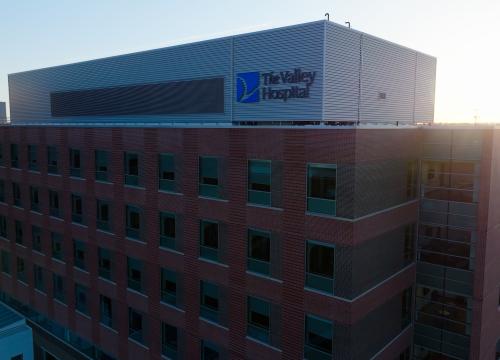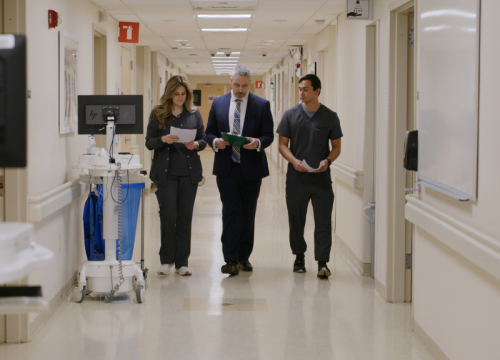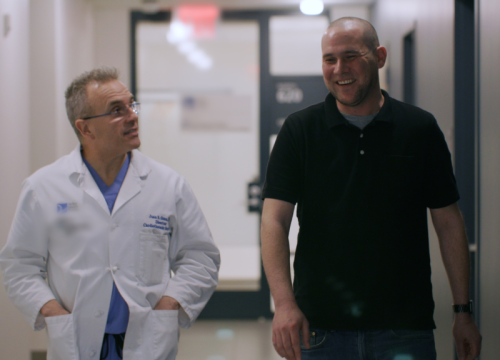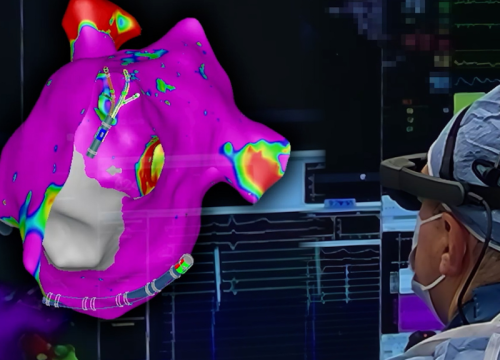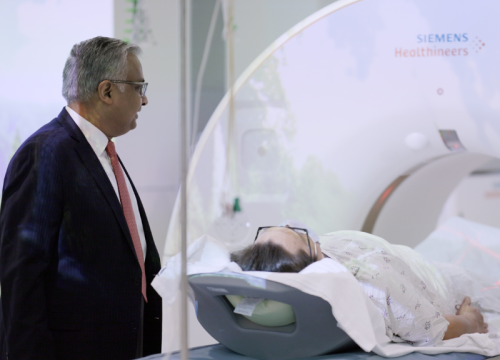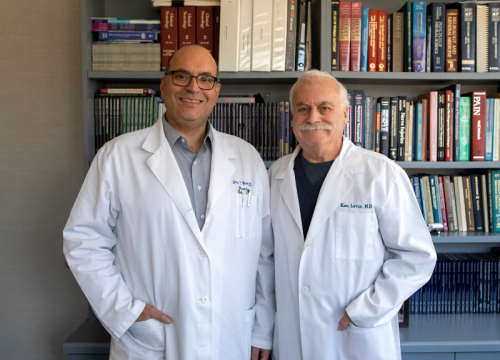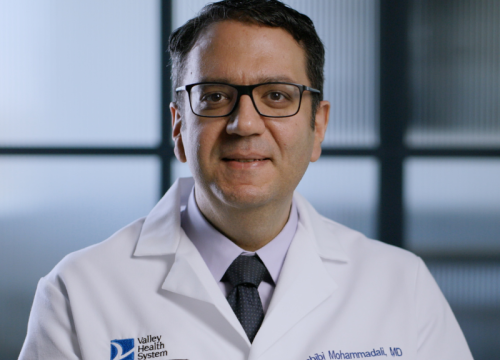An electrophysiology study (EP study, or EPS) is a test we use to better understand the electrical activity of your heart. It can help our electrophysiologists find out:
- The cause of your arrhythmia (irregular heartbeat)
- Where the irregular heartbeat starts in your heart
- The reason for your symptoms, such as shortness of breath or fainting
- How well your current treatment is working and if you should try a different treatment
At Valley, we have the latest technology for electrophysiology studies. This includes high-definition cardiac mapping systems that are better at finding arrhythmias.
What is an Electrophysiology Study?
During an electrophysiology study, an electrophysiologist places special catheters with electrodes through a puncture in your groin. Then your doctor moves the catheters through your blood vessel to your heart to measure its electrical activity.
Most electrophysiology studies are performed with an ablation, which is the first choice for treating many arrhythmias. An EP study can show where the arrhythmia occurs in the heart so doctors can correct it.
Am I a Candidate for an Electrophysiology Study?
We may recommend an electrophysiology study if you have:
- An abnormal electrocardiogram (ECG), echocardiogram or other test
- Fainting or near-fainting (syncope), shortness of breath, fatigue or palpitations
- A scheduled ablation to treat your arrhythmia
Preparing for an Electrophysiology Study
At Valley, our electrophysiologists perform EP studies every day. We are here to help you feel at ease before, during and after the procedure.
To prepare for your electrophysiology study:
- Don’t eat or drink anything after midnight before your test.
- Tell us about all medicines you take, including over-the-counter medicines, herbs and vitamins. We may ask you not to take them before your test, but don’t stop taking them unless we say so.
- Have someone available to drive you to and from the hospital. You will not be able to drive yourself home.
- If you wear glasses, bring them to the hospital.
- If you wear a hearing aid, wear it during the test.
What to Expect During an Electrophysiology Study
Here’s what you can expect if you have an electrophysiology study:
- At Valley, a nurse will put an intravenous (IV) line in your arm to give you medicine so you relax. Or we may give you medicine to put you to sleep.
- A nurse will clean and shave your groin area where your doctor will insert the catheters for your procedure.
- We will give you an injection of a local anesthetic to numb your groin.
- We will make a small needle puncture through your skin into your blood vessel. Then we will insert small tubes into your veins.
- Through the tubes, we will guide three to five specialized electrode catheters to record your heart’s electrical activity. These catheters let us send electrical signals to your heart to make it beat at different speeds. You may feel your heart beat faster or stronger, but you will not feel any pain.
- We may also give you medicine through your vein to change your heartbeat and recreate an arrhythmia.
Most EP studies take one to two hours, but they may take longer if you need treatment. This may include:
Recovery After an Electrophysiology Study
Here’s what to expect immediately after an electrophysiology study:
- You will be moved to a recovery room to rest for two to three hours.
- You should not move or bend your legs during this time to prevent bleeding from your groin.
- Your nurse will check on you often to see if there is bleeding or swelling in your groin.
- After you fully wake up, your doctor will discuss your test results and your care plan.
- Most people can go home the same day.
At-Home Recovery
Here’s what to expect when you go home:
- Follow the care instructions we gave you, including taking any new medicines.
- Most people can start eating food and taking medicines within four to six hours after the test.
- You should take it easy for three to four days and avoid driving, exercise and lifting weights. Walking and climbing stairs is fine.
- After three or four days, you can gradually increase your activity. Most people can return to their usual activities within a week.
- Your groin may be sore for a few days, and you might develop a small bruise or lump that will go away in a few weeks.
Call your doctor right away if you have:
- Bleeding at the puncture site
- Chest pain
- Shortness of breath
- Dizziness
- Fainting or near fainting
- Fever
- Chills
- Trouble swallowing
You’ll return to your doctor’s office in a few weeks to discuss future treatments if needed. Evidence-based treatments available at Valley can help you feel better and reduce your future heart risks.
Why Choose Valley for an Electrophysiology Study?
- Clear explanation of your results: Our electrophysiologists will thoroughly explain the findings of your EP study and answer any questions you have. We aim to make you feel comfortable communicating with every member of your care team.
- Expertise with ablation: If we find an arrhythmia that would benefit from ablation during your electrophysiology study, you’re in good hands. Our electrophysiologists have extensive experience performing ablations and continue to study the procedure in clinical trials.
- Advanced care for AFib: Valley’s Snyder Center for Comprehensive Atrial Fibrillation offers treatment plans to ease the symptoms of AFib and other arrhythmias. If ablation is not right for you, we may suggest other options to bring your heart rhythm back to normal.
- Convenient, coordinated care: Our nurse coordinators will set up your appointments quickly and connect you to whatever services you need at Valley. You may even be able to see an expert on the same day you call.




